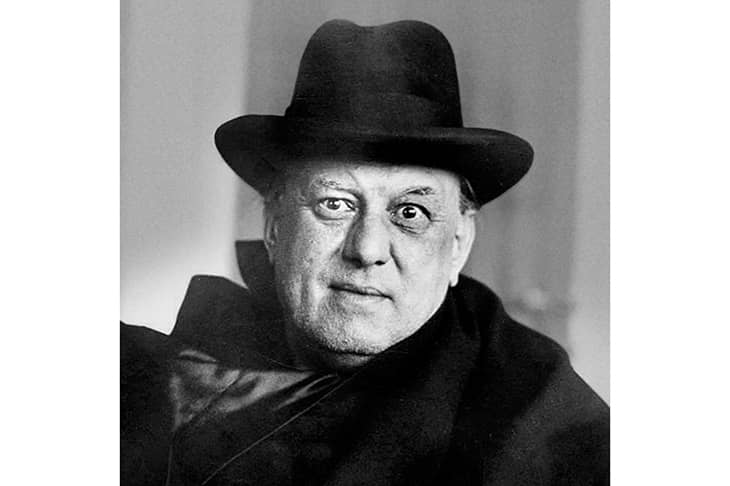Not long after Catriona and I first met, her husband painted my head and shoulders portrait in oils as I sat next to an open window in Provence with my shirt off. The result was an astonishing and rather brilliant study of spiritual depravity. But I was too amazed and humbled to have my portrait painted in oils by a professional artist of international repute to much care about the result. Nor had I expected a photographic likeness. And at the same time I was genuinely delighted that at least I didn’t look like a bourgeois.
Later the painting arrived in Devon in the post, beautifully and expensively framed, and I hung it in pride of place above the mantelpiece. But the image of a man so obviously rejoicing in evil had a universally disquieting effect on those who saw it. Forty years as a medical missionary in the jungles of Papua New Guinea, for example, were insufficient to brace the vicar against such an exquisite depiction of an evil spirit. She took one look at it and seriously advised me to take it down and destroy it. I did take it down, but scoffed at the idea of a supernatural influence and preserved it.
Think Aleister Crowley doing an impression of the explorer Sir Richard Burton doing an impression of Iago
Last week a van driver delivered the final load of my worldly possessions. These had been stored in a Wiltshire cottage since the beginning of the Covid pandemic. Twelve boxes of secondhand books, three bookcases, framed photographs of sentimental value, the majority of which I’d forgotten about; two stuffed birds, a great loon and a buzzard, both Edwardian, the loon’s glass broken; a collection of Great War trench maps; a bundle of old winter coats; half a dozen oil lamps with the chimneys incredibly intact; old shirts; a box of stationery; another of toiletries; a pair of garden shears; a carrier bag of cutlery, plates and table mats inherited from my dear old mum, most of it familiar since childhood; a barometer unfortunately smashed during the unloading; and finally that extravagantly framed portrait of my depraved face surmounted on a bull neck, the sinews taut and prominent, perhaps at the point of orgasm, or anyway alight with a sort of ecstatic malevolence. Think Aleister Crowley doing an impression of the explorer Sir Richard Burton doing an impression of Iago.
Our cave house is small and already choc-a-bloc. Fortunately we have use of a dusty cavern next door as a store. The van driver had a woman with him who was not his wife, to whom he was rude and impersonal, as if he had picked her up somewhere en route, and was minded to discard her just as easily if she didn’t shut up and pull her weight. Being himself overweight and of an indolent, opinionated disposition — really quite mad, I thought — he stood by and expatiated on the difficulties he had encountered at the borders owing to Brexit, including extra paperwork for which he was forced to charge £130 extra. The stuffed birds had only got through by a miracle because his van was not X-rayed as is standard procedure nowadays. For this I ought to be thankful and mainly to him for his recklessness in not declaring them. And how he got the van down this lane he’ll never know. Occasionally he would step in and lend a hand if he spotted something featherlight coming out.
Meanwhile the woman employed every last ounce of her strength to push the heavy boxes on to the tailgate, while I carried the boxes from there to stack them at the foot of the cliff path leading up to the house. At one point I felt faint and had to sit on a rock, explaining that I was presently fatigued by a bout of chemotherapy. ‘Which cancer?’ demanded the driver. ‘Prostate,’ I told him. ‘Metastasised’. ‘Oh, there’s a chap at the golf club had that. One minute he looked well, the next time I saw him he had lost five stone, and then he was dead. Nice chap. Not a bad player either. Funny how cancer does the nice chaps in first. Oh, is that everything then?’
‘Just this,’ said the exhausted woman, handing him the portrait of Dorian Gray face-up.
‘Blimey,’ he said, recoiling from it. He put on his art critic’s hat and held it at arm’s length. ‘Looks like Hitler,’ he said. ‘That’s me, that is,’ I said. He looked from me to the portrait and back. ‘Not much of a likeness, is it?’ he said. ‘I don’t know,’ I said.
When he’d gone, the portrait was the first thing I carried up the path. Catriona refused point blank to have it indoors. Later she told me she had removed the canvas from the frame, then painted a thick monochrome layer over the image and when it had dried she’d sawn it up and burnt the fragments in the stove.







Comments